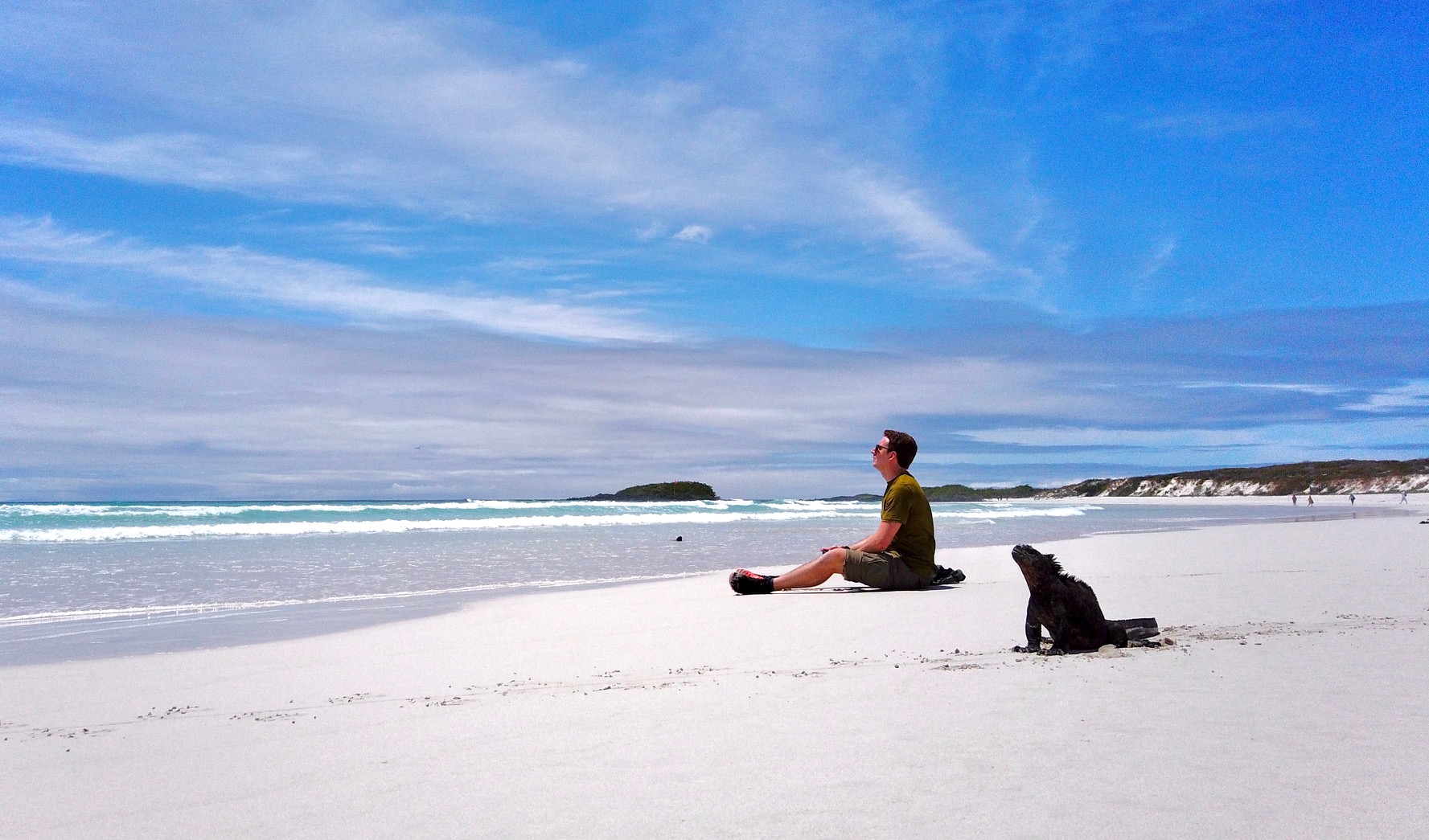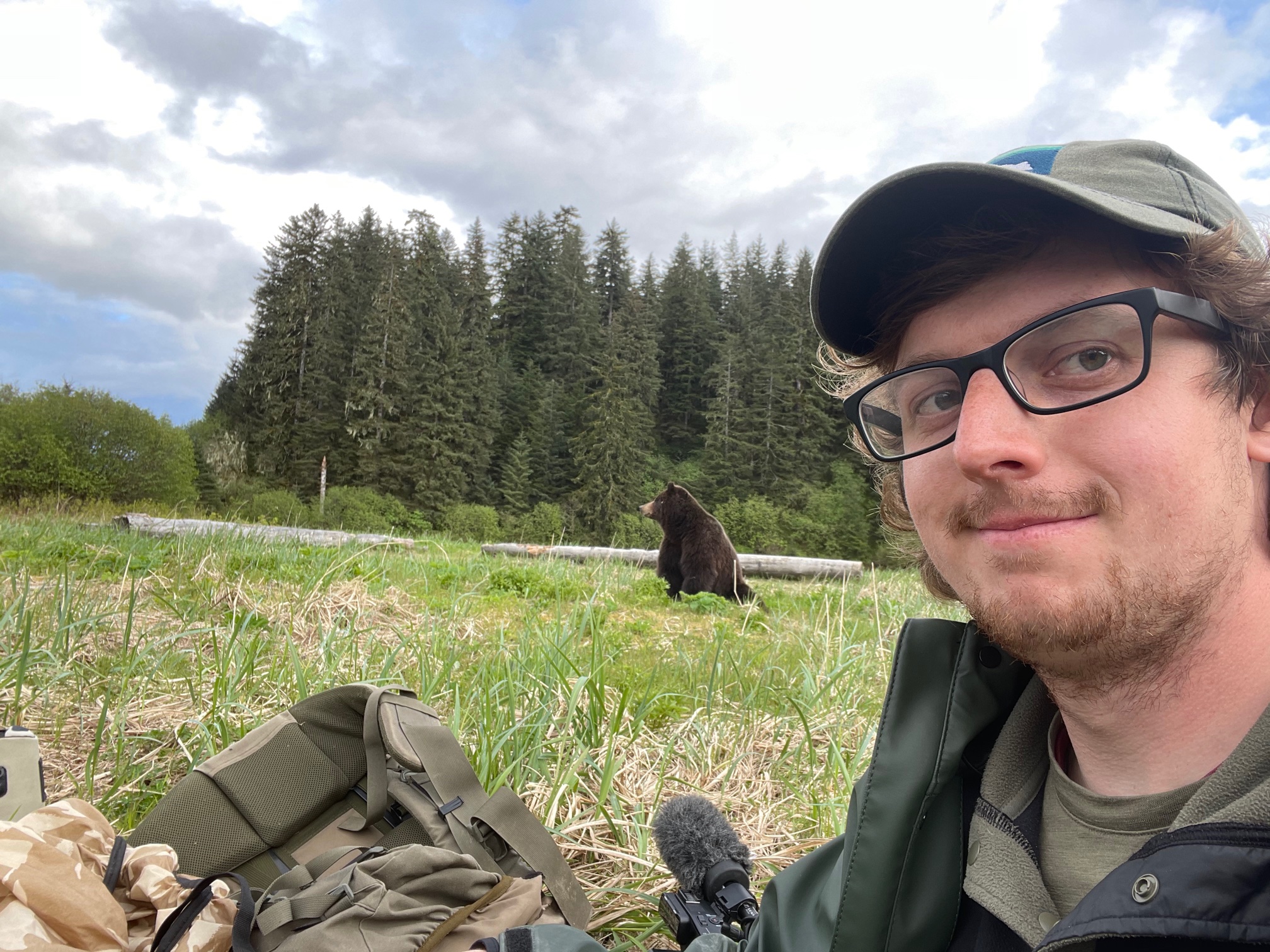We are looking back on some of our BSc graduates who have excelled in scientific research, ecology and conservation around the world since studying with us.
Today we meet Oscar who graduated from BSc Zoology in 2017 and is now working as a Researcher for the BBC Natural History Unit.

Hi Oscar, it’s been a few years since you studied with us, why don’t you tell us a bit about your career in that time that led you to where you are now?
After working in bear rehabilitation in Canada during the summers of my undergrad, I approached several wildlife production companies and managed to secure a few weeks as an intern. Through contacts made there, I met with an executive producer who was making a program about raising bear cubs for the BBC. By coincidence, he had once given a talk to Wild Doc Soc. He offered me a position as a junior researcher, setting up the program and joining the shoot in Russia to film the first episode. After that, I was out of work for a month, which was rough, but secured another job as a camera assistant. This wasn’t the pathway I wanted to take in my career, but it was within the industry and I was keen to be earning. The role lasted a month and was great for ‘soft skills’. My next job as a researcher lasted a year, working on wildlife programs much closer to my interests. Deviating wildly, I went back to Canada to work as a bear guide for three months, before returning to Bristol and getting a six-week interim job on another TV show. After this, I got my current job as a researcher at the BBC, strangely enough working alongside two other Exeter graduates.
We’re glad you had such great opportunities! What did you enjoy most about studying in Penryn?
It was great to be surrounded by like-minded students, in an environment that allowed me to take part in several societies and student organisations alongside my studies. Field trips were a great part of the course, something to really look forward to, but the vast majority of the lectures were really interesting, even the topics you’d least expect. Listening to someone talk passionately about aspects of biology that were never covered in school was an unexpectedly powerful experience.
Why don’t you give us a bit of background about what made you choose to study your BSc with us at the University of Exeter Cornwall Campus?
The field courses were a huge attraction, but the societies were important to my choice as well, particularly the non-course related ones (though ironically, it was those I ended up involved with most). On the open day that I attended, the faculty were so friendly but also ripping in to each other, which made for a really fun atmosphere. I’m happy to report that continued throughout my degree.

Why did you choose to pursue a career in TV production?
I think a lot of people would love to work in wildlife TV; it’s a passion-driven industry. It can be punishing getting your foot in the door, short contracts are common, two to three months for each role with no guarantee they’ll need anyone to stay on longer, but once you’ve persisted through the first few jobs it gets easier. The job itself can be rough, three weeks camping in the snow, waiting for animals that may not turn up, or it can be a cakewalk, a month on a dive boat surrounded by sealions, and it also involves a lot of time just working in an office, coming up with bizarre plans, but I think every aspect is exciting and the experiences are unsurpassed. It’s so enjoyable, I sometimes struggle to use all my holiday allocation.
Are there any particular skills or experiences that have helped prepare you for your next steps?
Understanding the basics of biology is important, it helps massively with reading papers that I now use to ensure wildlife documentaries are based on facts. Boring, but risk assessments continue to be a part of my life, as do statistics. I was very involved with societies, both participation and organisation, which comes up repeatedly in the form of dreaded risk assessments, but also organisation and management. One of these societies was Naturewatch, a student YouTube channel mimicking Springwatch, which was directly related to the career path I wanted to follow. Although there was no one with ‘TV experience’, through trial and error we all learned a lot, and now several of us are working in Bristol in the television industry.

Do you have any advice for those looking to pursue something similar?
Gain experience, any experience you can. Show you have a willingness to work hard at anything and everything, and then make sure you can talk about it in a way that sounds exciting. Watch documentaries, a lot of them, and try to understand as much as you can. You don’t need a camera, you don’t need to know how TV works, you just need to be keen to listen and learn. Then, when you’re ready for the first job or work experience, start emailing everyone you’ve ever heard of in TV, and everyone you’ve never heard of but you found their name in the credits, and ask if they’ll have a coffee with you and talk about how they got into the industry. It’s a passion-driven industry, so there can be some competition, but stay at it, and you’ll make it.
Finally, do you have any plans for the future?
I intend to continue working in wildlife TV, and keep finding random ways to interact with bears in new and interesting ways. As I gain more experience, I hope I’ll become a producer, and continue to travel to new and exciting places. Thankfully, lots of production companies enforce a policy of carbon-offsetting their travel.
Thank you Oscar!
If you want to read more profiles from BSc Zoology graduates follow this link or explore our Graduate in Focus homepage to learn more about the degree programmes we have on offer!

